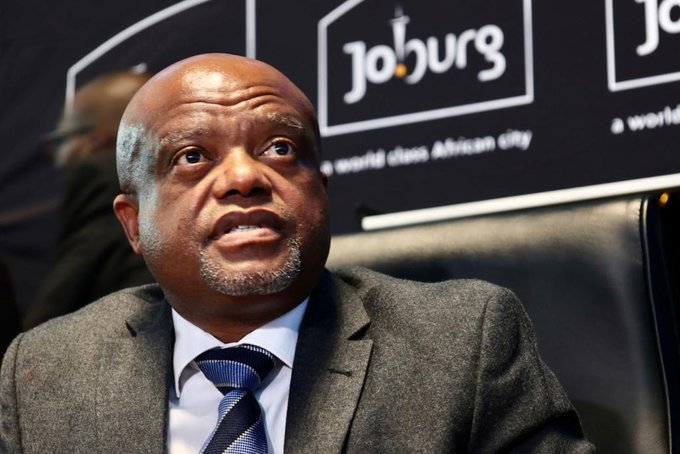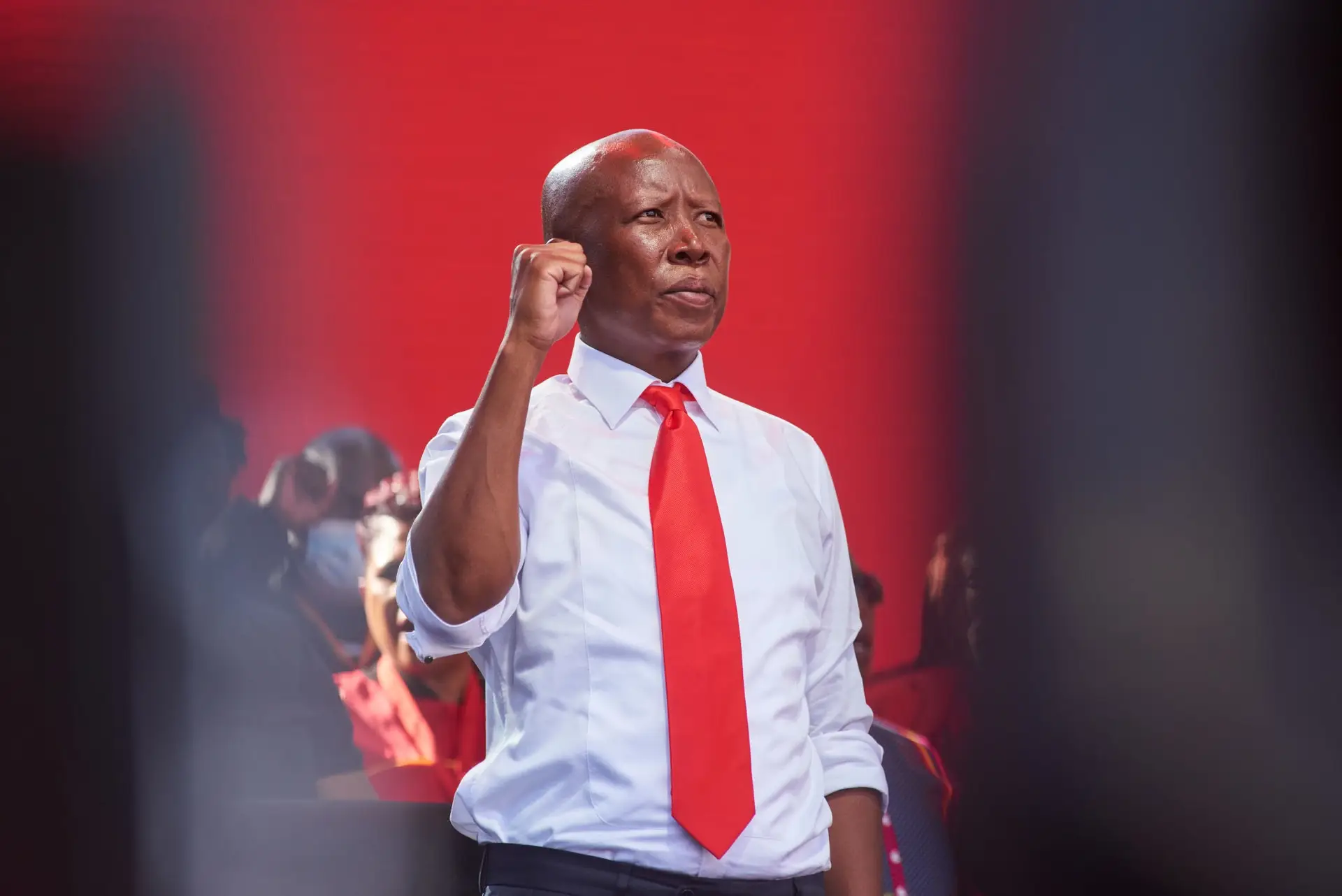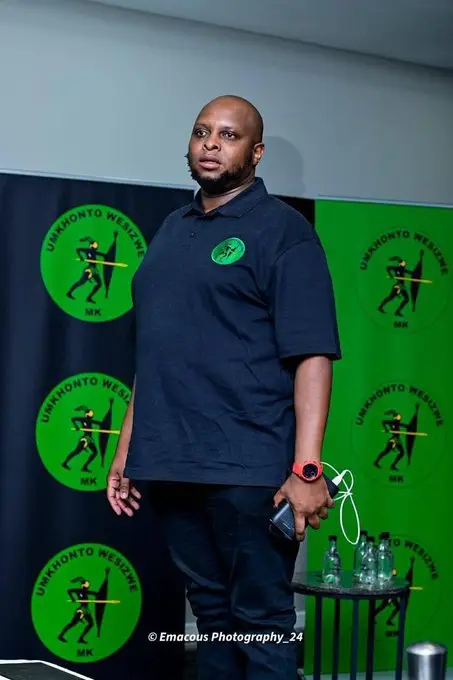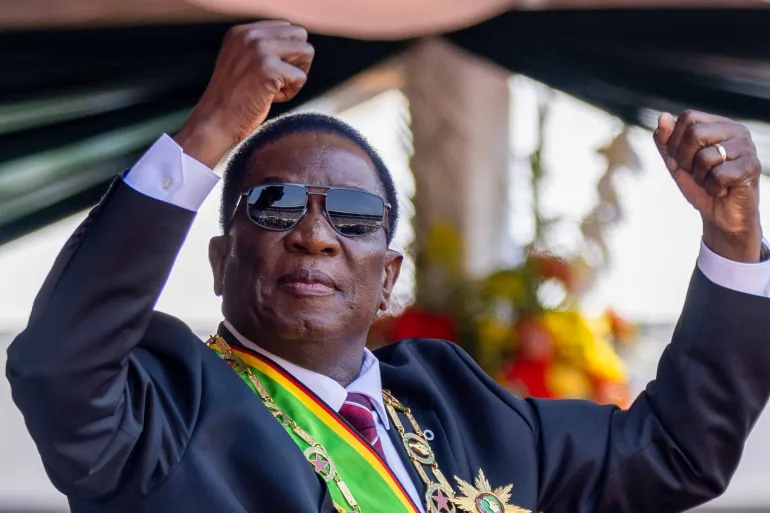Introduction
The political landscape of Johannesburg witnessed a dramatic upheaval with the re-election of Dada Morero as the Mayor. This event not only marked a significant moment in the local governance but also underscored the unpredictable and often turbulent nature of South African politics. In an unexpected twist, the Democratic Alliance (DA) played a key role in the development, adding layers of complexity and intrigue to the unfolding narrative. As Johannesburg navigates through its socio-political challenges, Morero’s re-election brings forth a wave of anticipation and uncertainty, setting the stage for what promises to be a compelling term in office. This post delves into the circumstances and ramifications of this significant political event, exploring the factors that led to Morero’s re-election and the implications for the future of Johannesburg.
Surprising Opposition
In a surprising twist, what seemed to be an uncontested re-election for Dada Morero faced unexpected turbulence. The Democratic Alliance (DA), a prominent opposition party, disrupted the apparent smooth path to victory by nominating their caucus leader, Belinda Kayser-Echeozonjoku, from the floor. This sudden move sparked immediate reactions among the gathered council members.The nomination of Kayser-Echeozonjoku was met with a mixture of astonishment and unease. The sudden turn of events introduced heightened tensions within the council chambers.
Support from Other Parties
Dada Morero’s election as Mayor of Johannesburg for the second time was marked by a significant degree of political maneuvering and cross-party support. A noteworthy aspect of his election victory is the diverse coalition that rallied behind him, showcasing a blend of strategic alliances and shared objectives.
ActionSA, one of the pivotal players, extended its support to Morero, driven by a pragmatic approach towards addressing Johannesburg’s pressing challenges. Their coalition with Morero represents a mutual understanding of key socio-economic issues and a collaborative effort to bring sustainable urban development. The signs of growing coordination between ActionSA and Morero’s party indicated an emerging alignment on critical city governance priorities.
Similarly, the Inkatha Freedom Party (IFP) demonstrated considerable backing for Morero, reflecting their common ground on vital policy aspects. IFP’s support was instrumental in navigating the political landscape, ensuring a stable coalition amid the competitive environment. This alliance underscores IFP’s commitment to pragmatic governance and improving public services within Johannesburg.
The Mkonto We Sizwe Party (MK Party) also played a strategic role, aligning with Morero to further their political aims focused on social justice and community upliftment. Their support brought a critical dimension to the coalition, addressing grassroots concerns and aiming for inclusive governance. The MK Party’s involvement highlights a shared vigilance towards addressing historical inequalities and fostering a more equitable urban society.
The Economic Freedom Fighters (EFF) added significant weight to the coalition with their influential support. EFF’s backing not only solidified the coalition but also set forth an agenda aimed at radical economic transformation and inclusive policy-making. The synergy between EFF and Morero’s leadership is indicative of their joint commitment to address economic disparities and enhance public welfare.
These multifaceted alliances underscore the dynamic nature of political coalitions in Johannesburg, reflecting a collective endeavor towards improved governance and the realization of shared urban development goals. The coalition’s composition reveals a strategic alignment among diverse political entities, united by common interests and a vision for a better Johannesburg.
Election Results
The election for the mayoralty of Johannesburg culminated in a decisive victory for Dada Morero, who secured the position with an impressive 189 votes. His closest contender, Kayser-Echeozonjoku, garnered only 60 votes, underscoring the substantial support for Morero within the council. This significant margin not only highlights Morero’s popularity but also emphasizes the confidence placed in his leadership by a clear majority of the voting members.
The announcement of the results was met with scenes of jubilation. Supporters erupted in celebration, and the air was filled with ululation, a traditional expression of joy and triumph. The immediate response to Morero’s confirmation as mayor reflected both relief and hope among his backers, who believe in his vision for the city’s future. The atmosphere was electric, marked by a tangible sense of optimism and renewed enthusiasm for the incoming administration.
Dada Morero’s victory is seen as a turning point for Johannesburg, promising a period of stability and progress. The electoral outcome signifies not just a personal triumph for Morero but also a mandate from the city’s council to execute his plans for development and reform. This resounding win will enable him to forge ahead with his agenda, striving to meet the expectations of those who have placed their trust in his leadership.
As Johannesburg prepares to embark on this new chapter under Mayor Dada Morero’s guidance, the anticipation builds around the changes and improvements his administration will bring. The clear mandate from the election results reflects a strong desire for effective governance and change, laying a solid foundation for future endeavors.
Morero’s Previous Tenure
Dada Morero’s earlier tenure as Mayor of Johannesburg commenced in September 2022, under dramatic and contentious circumstances. Morero was elected following the ousting of the Democratic Alliance’s Mpho Phalatse. The City of Johannesburg’s political landscape had been tense, with frequent power struggles marking the mayoral office’s history. Morero, representing the African National Congress (ANC), saw his election as an opportunity to realign the city’s priorities towards more inclusivity and development-centric governance.
His tenure was, however, abruptly curtailed by a ruling from the Gauteng High Court. The court found that the procedures leading to Phalatse’s removal were irregular and unlawful, thereby reinstating her as mayor after a brief hiatus. This ruling not only cut Morero’s plans short but also underscored the fraught and often litigative nature of Johannesburg’s municipal politics.
Despite the brevity of his term, Morero’s leadership left a discernible imprint. He emphasized immediate interventions to address pressing urban issues such as service delivery, infrastructure repair, and public safety concerns. Key initiatives included an accelerated focus on housing, a critical issue in Johannesburg’s expansive metropolitan area. Morero advocated for intensified efforts to upgrade informal settlements and expedite the allocation of housing units to needy residents.
Morero’s administration also sought to strengthen ties between various tiers of government and non-governmental organizations, recognizing the importance of a collaborative approach to urban governance. His tenure, though transient, reinforced the ANC’s agenda in local governance and highlighted the importance of adherence to lawful processes in political transitions.
The politics of Johannesburg remain a potent mix of dynamism and unpredictability, and figures like Morero play a pivotal role in navigating this complex landscape. His brief spell as mayor, marked by immediate action and strategic focus, set a precedent for the role and underlined both the opportunities and challenges that accompany stewardship in one of Africa’s most vibrant cities.
Pressure Leading to Gwamanda’s Resignation
The lead-up to the special sitting that ultimately saw Dada Morero elected as Mayor of Johannesburg was marked by significant turbulence within the city’s political landscape. Kabelo Gwamanda, the previous mayor representing Al-Jamah, found himself at the center of escalating pressure that culminated in his resignation. Gwamanda’s tenure was characterized by numerous challenges, criticisms, and a perceived inability to effectively manage the sprawling metropolis.
Gwamanda’s administration faced continuous scrutiny over its alleged inefficiencies and shortcomings in service delivery. His ascendancy was initially seen as a beacon of hope, yet it soon became apparent that his grasp on Johannesburg’s intricate governance needs was tenuous. Reports emerged highlighting various instances where basic services, such as waste management, public transportation, and water supply, were not adequately maintained or improved, leading to widespread public dissatisfaction.
The situation became increasingly untenable as opposition parties and civil society groups vocalized their discontent with Gwamanda’s leadership. They argued that his governance approach lacked strategic direction and decisiveness, crucial elements for steering Johannesburg through its myriad urban challenges. Furthermore, Gwamanda’s administration struggled with financial accountability, aggravating the city’s fiscal woes and undermining public trust.
This relentless pressure reached a tipping point, rendering Gwamanda unable to retain his position amid spiraling discontent. His resignation was seen as an inevitable outcome of sustained political and public pressure. With his departure, there was an urgent need to restore stability and confidence in the city’s administration, setting the stage for the special council meeting that elected Dada Morero as mayor. Morero’s second tenure commenced with the considerable task of addressing the lingering issues left unaddressed by his predecessor, underlining the complexities of managing one of South Africa’s most prominent cities.
Conclusion and Future Prospects
Dada Morero’s political journey has been marked by resilience and perseverance, culminating in his re-election as the mayor of Johannesburg. As the ninth individual to hold this office since 2016, Morero’s victory is significant not only for its dramatic fashion but also for what it symbolizes in a city characterized by political volatility. His re-election underscores the ongoing challenges within Johannesburg’s political landscape, highlighting the need for stability and effective governance.
This second tenure brings with it both opportunities and substantial challenges. Morero’s ability to navigate the intricate political dynamics will be paramount. The city’s unique sociopolitical fabric demands a leader who can unify diverging interests and foster a cohesive working environment within the municipal council. Given Johannesburg’s history of frequent leadership changes, continuity and consistency will be key factors in achieving meaningful progress during his term.
Beyond political maneuvering, the demands for improved public services remain critical. Johannesburg’s residents expect decisive action on pressing issues such as infrastructure development, economic growth, and addressing socio-economic disparities. As mayor, Morero must prioritize service delivery to foster public trust and meet the expectations of his constituents. Efficient management of resources and transparent governance will be essential in restoring faith in the city’s administration.
Looking ahead, the future of Johannesburg under Morero’s leadership holds both promise and uncertainty. His administration will need to balance immediate public service needs with long-term strategic planning to realize the city’s potential as an economic powerhouse. The onus is on Morero to steer Johannesburg through its challenges and capitalize on its opportunities, making his re-election a critical turning point.
Ultimately, Dada Morero’s re-election as mayor represents a new chapter in Johannesburg’s ongoing story. His leadership will be scrutinized and his actions measured against the high expectations of the city’s residents. The path ahead is fraught with challenges, but also ripe with potential for positive transformation under his determined stewardship.






